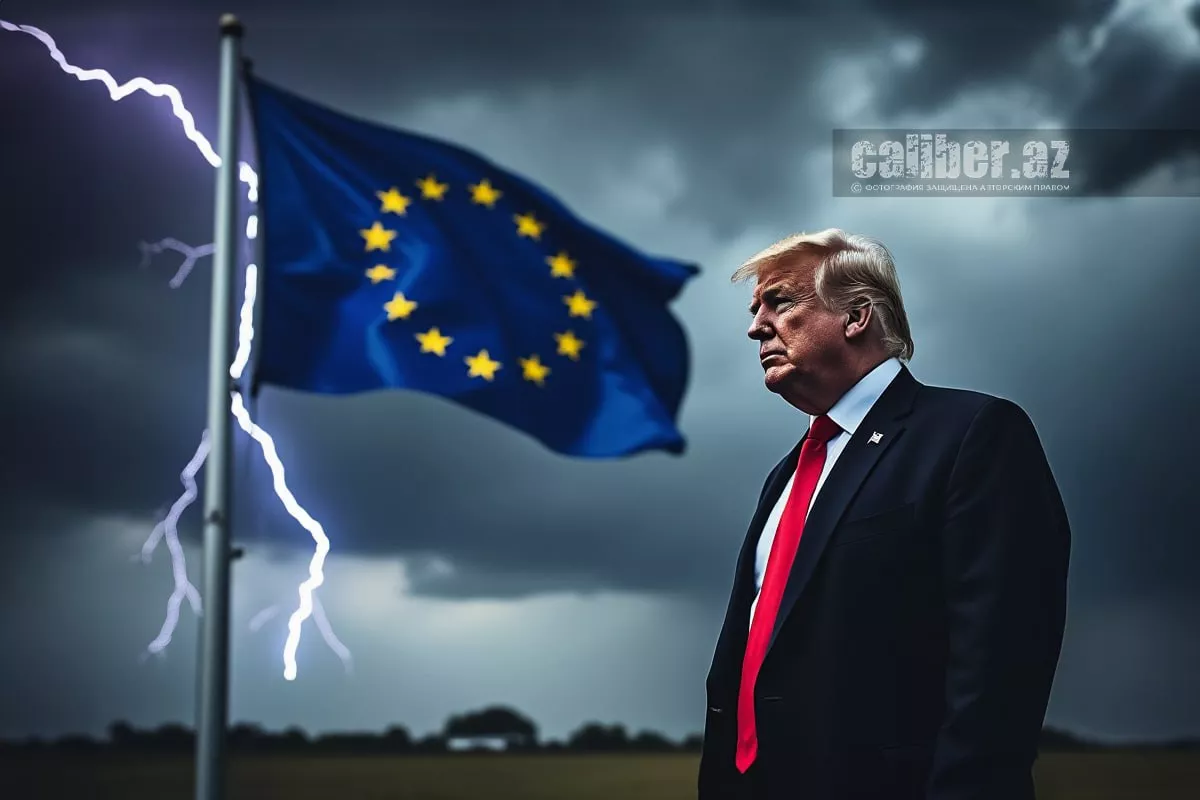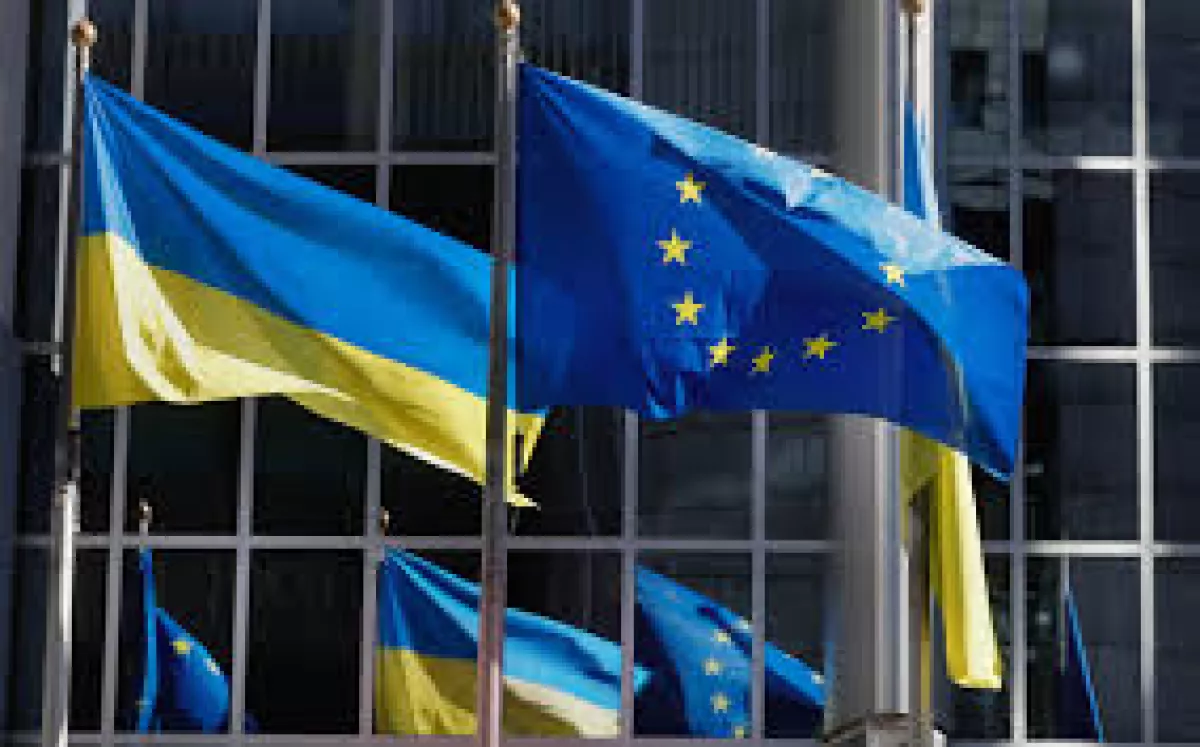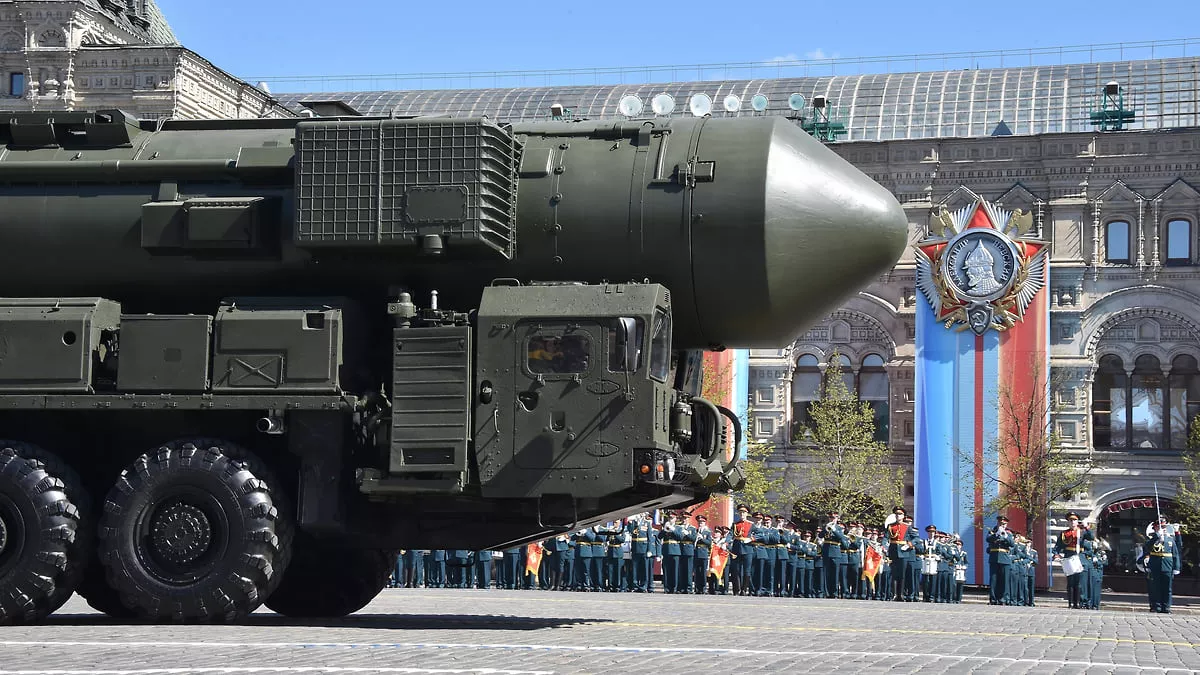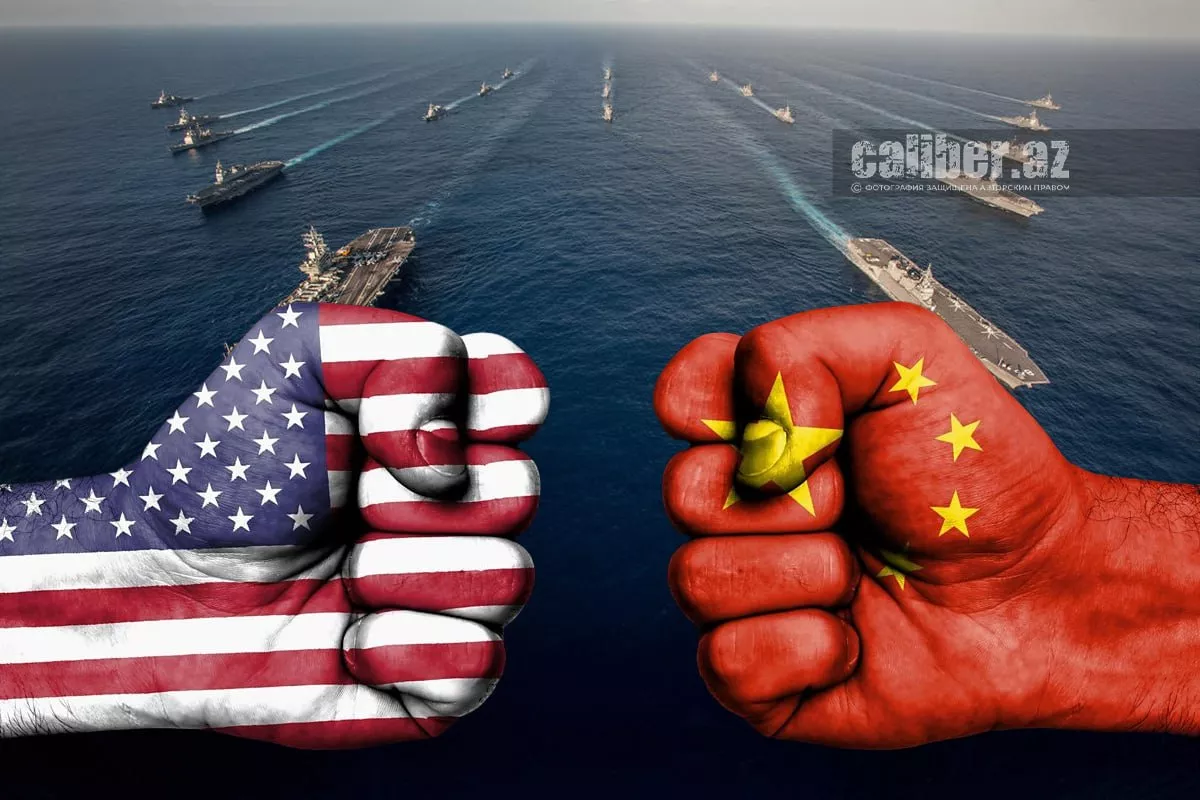The EU’s main dilemmas lie in the East Confronting new strategic realities
Despite all the media hype, the European Union’s main long-term challenges and dilemmas are not across the ocean, but in the East. And resolving them is not as simple as the authors of the strategic documents currently being adopted in Brussels seem to believe. The European Union needs a comprehensive strategic vision of itself and the world around it—one that moves away from outdated historical analogies and is based on balancing the interests of all its member states.
For obvious reasons, in recent months, the attention of European politicians has largely been focused across the Atlantic. The main reason for this is Donald Trump. Long before his political career, the current U.S. president was known for his wary, if not harsher, attitude toward Europe in general, and especially the European Union as an integration project. Just recently, he candidly reminded everyone what he thinks about a united Europe. According to the White House chief, "the European Union was formed in order to screw the United States." During his first presidential term, Trump frequently repeated that, in terms of trade, "the European Union is possibly as bad as China, just smaller."

Of course, such assessments from the highest echelons of American power are bound to concern politicians and bureaucrats in the EU. For many decades, both Republican and Democratic U.S. administrations have expressed serious dissatisfaction with Europeans, especially regarding their comfortable lives under the American security umbrella with minimal financial expenditure. However, the style in which these grievances were presented and the overall climate in transatlantic relations remained distinctly friendly. In these conditions, Europeans grew accustomed to the idea that Americans might constantly mutter about something, but no real measures of coercion would follow against their allies.
Therefore, the rhetoric and, most importantly, the actions of the Trump administration undoubtedly unsettle Europeans and put them in a state of total stress. This is particularly true as these concerns extend beyond defence issues, where Washington now, no longer just for show, demands that allies redirect part of their social spending toward military needs and reduces its own commitments to their defence. Equally pressing, the U.S. raises issues in the realm of trade—just consider the tariff proclamations alone! All these developments foster almost apocalyptic feelings for many in Europe. Hence, the heightened focus on the transatlantic relationship.
Not the transatlantic, but the East
However, despite the shock that Donald Trump’s policies cause in the EU, the main strategic dilemmas for united Europe lie not across the Atlantic, but in the East. And by "East," this should be understood in the broadest sense: from relations with China to neighbourhood policies in Eastern Europe and the South Caucasus, as well as relations with Russia. Why exactly there? Because in transatlantic matters, despite the seemingly revolutionary changes currently taking place, the long-term trajectory is more or less clear and even somewhat preordained in broad terms. Were it not for Trump, the objective needs and interests of the United States would have still led transatlantic relations down this path, albeit more slowly and with a different public presentation. And if, after the next presidential elections, American voters return the Democrats to the White House, one can confidently predict that there will be no drastic or fundamental shifts in their European policy.
In strategic terms, the EU doesn’t have many variables in the transatlantic direction that can truly be influenced, and that deeply depend on the EU itself and the decisions Europeans will make. At least in the tangible near future. Beyond that, the situation may become more complex, and more variables may arise. But for this, it is crucial for the EU to focus on the Eastern direction right now. There, the political variables for the European Union are of a different quality. How united Europe approaches these variables will largely determine whether the global picture becomes more complicated, and what role the EU will play in that picture. Moreover, the future shape of the European Union (and whether it continues to exist at all) will also depend, in no small part, on how it addresses its Eastern dilemmas.

The reflections presented below touch on all the components of the EU’s Eastern policy: relations with China, Russia, and neighbouring countries in Eastern Europe and the South Caucasus. In this article, we will focus on the Russian vector of the EU, while we will address the other aspects of the EU's Eastern policy in future publications.
The disorienting parallel with the Cold War
If you read the strategic documents currently being adopted at the EU level and by many of its member states, the direction concerning Russia seems, at first glance, clear and straightforward. For instance, the recently presented working document on European defence readiness by 2030 (Joint White Paper for European Defence Readiness 2030) no longer refers to Russia merely as a challenge or adversary, but as a "strategic threat on the battlefield." Based on this perception of Russia as a threat across all domains, including military, attempts are being made to reorient European integration from a "project of peace" to a "project of defence and security." This shift is accompanied by the necessity for many fundamental and painful changes.
Within the EU, many believe that the challenges and dilemmas the Union currently faces in its Russian direction are analogous to those of the Cold War era. According to this view, Moscow poses an existential threat to European values and way of life and is prepared to use the full spectrum of means, including military force, to achieve its goals. Therefore, the European Union must be prepared to counter threats from the east at all levels and respond with force to any show of strength.
This leads to a reliance on militarisation, which, according to the design of European politicians and officials, should ensure the deterrence of Russia through military means. In other words, Moscow must understand that even without NATO, Europe will always have the resources and capabilities to deliver a devastating response to any aggressive actions directed at it. This is the universal logic of deterrence that states and military blocs have followed throughout history. It is reflected in the old, tried-and-true formula: "If you want peace, prepare for war." Interestingly, Russia itself follows this same logic, for instance, by updating its nuclear doctrine and ramping up military production.

However, the problem for the EU is that, despite the apparent clarity of the situation regarding Russia and the seeming inevitability of militarisation as a means of deterring Moscow, the situation is strategically far more complex for a number of geopolitical and internal reasons.
First of all, however appealing the intellectual and emotional parallels with the Cold War period may be, they do not fully reflect the realities of today, both within Europe and globally. The elites and populations of Eastern European EU member states may, just as in the second half of the 20th century, perceive Moscow as an existential threat. They may also insist that they are the foremost and sole "experts on Russia," and therefore, the rest of the EU should trust them and follow their logic regarding the East. For a limited period, as is happening now, these arguments may resonate in other European countries. But this cannot last indefinitely, because there are no longer any ideological or geopolitical reasons for uncompromising systemic opposition between the U.S. and Russia. The global landscape today is being shaped by a different, primary rivalry—the U.S.-China confrontation.
This does not mean that Moscow and Washington are now doomed to friendship and cooperation. However, it does mean that the American factor, in the context of European attempts to deter Russia, will play a different role. The American security umbrella in Europe, in any future scenario, will no longer protect and unite European countries in the face of the Russian threat to the same extent it did during the Cold War. Many European politicians today believe that the EU must adapt to these new realities by developing its own military-industrial autonomy. However, if successful (which is far from guaranteed), this may solve only one problem.
The second problem, however, appears to be unsolvable for now: in the absence of the unifying factor of the American security umbrella, internal European contradictions regarding the perception of strategic threats and opportunities will intensify. As long as the Russian-Ukrainian war continues, these contradictions are not particularly noticeable; opposition to Russia remains a unifying line. At least in public discourse, the existing differences in views and interests are kept under wraps. This is particularly true given Hungary’s principled stance, which, for the time being, allows some other countries with similar positions to stay within the EU’s unified approaches. But once a consistent trend toward de-escalation emerges in the Russian-Ukrainian conflict, these internal European contradictions will inevitably begin to manifest in full force.
Militarisation is not yet a policy
Secondly, the EU simply cannot claim any geopolitical relevance or strategic autonomy if it does not find a way to reconcile viewing Russia as both an existential threat and a partner for addressing at least basic neighbourhood issues and cooperation. Without at least some level of cooperation—and therefore de-confliction—with Russia, there can be neither a predictable security situation nor conditions for sustainable economic development within the EU. In other words, without these elements, the EU will, by definition, be unable to be a strong actor in global affairs or independently resolve issues that are crucial for the stability of the European continent. This is particularly true in the context of increased turbulence in international relations and the growing dilemmas facing a united Europe due to the escalating strategic rivalry between the U.S. and China.

Finally, thirdly, militarisation and the deterrence of Russia are not yet a full-fledged policy in the true sense of the term. They can be components of a policy, even its basic orientations, but they are not equivalent to policy on their own and are insufficient. Especially considering the aforementioned issues: primarily, the inevitable surfacing of serious internal European disagreements on the definition of threats and opportunities in light of the changing factor of the American security umbrella.
The European Union needs a much more comprehensive strategic vision of itself and the world around it, one that is based on balancing the interests and perceptions of challenges and opportunities shared by all member states. Deterrence of Russia and other threats shared by member states must be organically integrated into this vision and balanced. Otherwise, it will remain just a political slogan, one that will increasingly be seen in some European capitals as a manifestation of paranoia in others.








